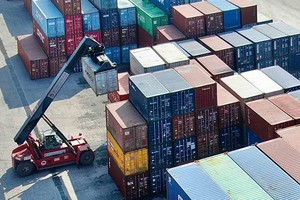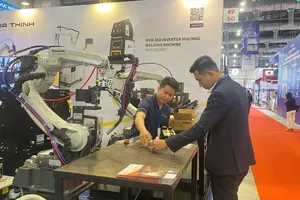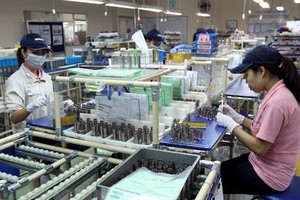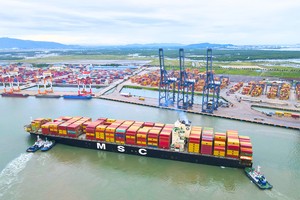
A survey conducted by VCCI showed that nearly 65 percent of Vietnamese enterprises had not prepared anything when participating in the global supply chain, while more than 50 percent of enterprises did not define their goals when participating in the global value chain.
It is necessary to further promote the connection between domestic supporting industry enterprises with multinationals and international leading enterprises to enhance their capacity and position in the global value chain, experts said.
At a seminar on promoting the development of the Vietnamese industrial sector held in Hanoi on May 27, Director of the Enterprise Development Institute under the Vietnam Chamber of Commerce and Industry (VCCI), Dr Luong Minh Huan, said that the capacity of self-reliant production and participation in the global supply chain are vital factors for the sustainable and proactive development of the Vietnamese industrial sector.
However, he added many Vietnamese enterprises do not have a clear awareness and proactive preparation when participating in the global value chain.
A survey conducted by VCCI showed that nearly 65 percent of Vietnamese enterprises had not prepared anything when participating in the global supply chain, while more than 50 percent of enterprises did not define their goals when participating in the global value chain.
Assessing the current situation of domestic industrial enterprises, Huan said though there have been many policies to encourage domestic industrial development, the localisation rate in many industries is still low. For example, electronics is a field with high export value, but the actual localisation rate is only below 10 percent, much lower than the set target.
According to Huan, many domestic enterprises limit themselves to participating in simple assembly and processing stages, and are still heavily dependent on imported components and raw materials.
He said Vietnamese enterprises still face difficulties when participating in the global value chain due to a number of reasons, including lack of effective support policies, lack of financial and technological capacity, lack of connectivity in the supply value chain and lack of market promotion measures.
Huan suggested that it is necessary to strengthen cooperation between localities, associations and leading enterprises.
In addition, he proposed focusing on developing key enterprises in the industry, while supporting the satellite ecosystem around them.
Along with that, the sharing of digital management information, tools and platforms, especially for small and medium enterprises with resource limitations, should be promoted, he said.
At the event, the Director of the Ministry of Industry and Trade’s Center for Industrial Development Support Chu Viet Cuong also admitted that the domestic industry is still facing many challenges such as domestic production capacity still being scattered geographically.
On the other hand, Cuong said, domestic enterprises still depend heavily on imported machinery and raw materials. They also face difficulties in accessing source technology and linking with large FDI enterprises, besides lacking high-quality human resources and appropriate specialised training systems.
To strengthen the position of Vietnamese enterprises in the global value chain, Cuong said it was necessary to build self-reliant industrial capacity and sustainable supply chains, with a focus on three main pillars, including technology and innovation; industry linkage and industrial cluster development; and a high-quality workforce.
According to Cuong, the Center for Industrial Development Support has been implementing service activities to support industrial enterprises and implementing the Supporting Industry Development Programme for 2016-2025 and the next period.
The centre has consulted and supported industrial and supporting industrial enterprises to improve production capacity, innovate processes, apply management tools, trial production, and participate in digital transformation and green transformation, which has helped to improve competitiveness, towards proactively participating in the value chain.
























